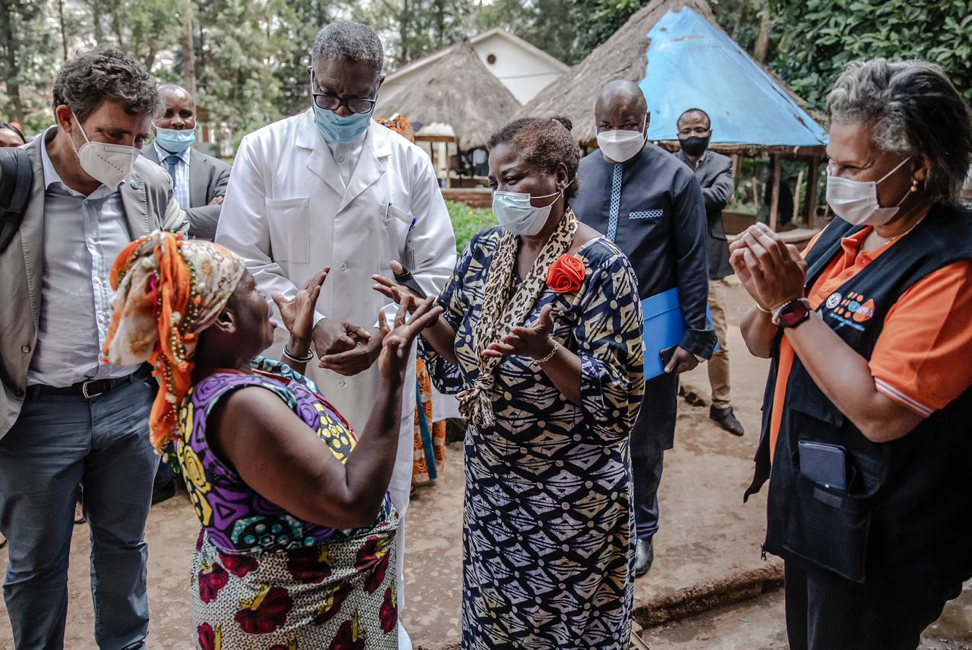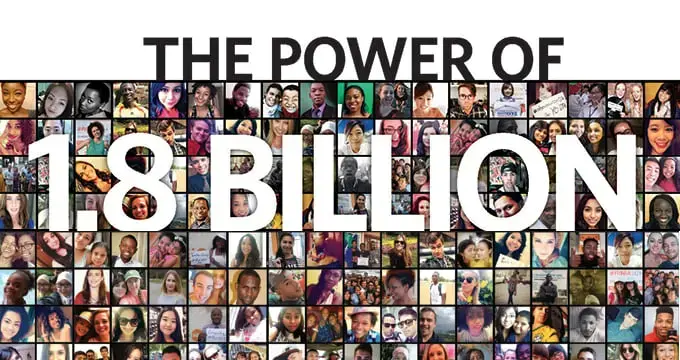BUKAVU, Democratic Republic of the Congo (DRC)—A quiet refuge in the middle of this busy town has a sign that reads ‘Bienvenue a Hopital de Panzi’ – Welcome to Panzi Hospital. A haven for survivors of sexual violence for more than two decades, it provides medical care and psychosocial support to women who have suffered conflict-related gynaecological trauma.
Nobel Peace Prize laureate and human rights activist Dr. Denis Mukwege grew up in in Bukavu, a small town on the shores of Lake Kivu. As a child, he often accompanied his father, a pastor, on his rounds to visit sick people. Today, Dr. Mukwege is known the world over as a voice for and the healer of thousands of women and girls who have endured sexual violence in conflict areas of the DRC, a complex country with a protracted humanitarian crisis.
It is ground zero for turmoil, from armed conflict to pandemics.
Young women and girls are caught in the crossfire of this country in crisis: rape has become a weapon of war, and this region records one of the highest rates of sexual violence against women and girls.

A gynaecological surgeon, Dr. Mukwege established Panzi Hospital in 1999. As the war rages on, he treats the mangled bodies of girls whose organs have been destroyed in violent gang rapes and repairs vaginas torn by the insertion of weapons. While surgery and medicine may heal their broken bodies, the emotional trauma persists, requiring psychological support.
We can’t just treat the finger or the ear. We have to see the person as an entire whole.
Over the years of caring for these survivors of horrific violence, Dr. Mukwege has adopted a holistic approach to their healing process. The Panzi model has pioneered integrated medical treatment, legal assistance, and psychological and socio-economic support. With healed bodies and regained mental health, the women are able to reintegrate more successfully into society.
“We can’t just treat the finger or the ear,” said Dr. Mukwege, who became a human rights activist and, in 2018, won the Nobel Peace Prize. “We have to see the person as an entire whole.”
Champions of peace
On a recent visit to the DRC, UNFPA Executive Director Dr. Natalia Kanem met Dr. Mukwege and they shared their vision of peace, as global champions of the rights of women and girls. In a rallying call, Dr. Mukwege and Dr. Kanem, together with governments and partners, urged the global community to keep its spotlight firmly on the DRC.
Currently, emergencies persist in 18 of the country’s 26 provinces. Nearly 13 million people needed humanitarian assistance in 2019 and of these, half were women and girls of reproductive age. Around 60,000 of them remain at risk of sexual violence and at increased risk of maternal morbidity and mortality due to a lack of access to high quality maternal health services.
Data from the DRC show that 64 per cent of women in the DRC have experienced violence at the hands of a partner at least once. UNFPA supported 50,000 survivors of sexual violence with medical treatment between 2013 and 2019, and almost the same number received psychosocial support.
Peace and prosperity can only be achieved when we win the battle against impunity, and women and girls can live free from harm.
UNFPA is working with the Panzi Foundation and other partners to support survivors. One such programme, a one-stop centre that provides an integrated model of service provision for women, takes inspiration from the Panzi model. UNFPA and the Panzi Foundation have also joined forces to increase the capacity of health-care providers such as doctors and nurses in the management of obstetric fistula cases. In 2020, the two entities organized a fistula repair campaign in Sud Ubangi province.
During Dr. Kanem’s visit, UNFPA and the Panzi Foundation agreed to further strengthen their joint efforts.
Reflecting on the protracted crisis in the country and the continued violence against women and girls, Dr. Kanem said, “Too often, peace is measured by the silence of the guns. Yet peace and prosperity can only be achieved when we win the battle against impunity, and women and girls can live free from harm.”




